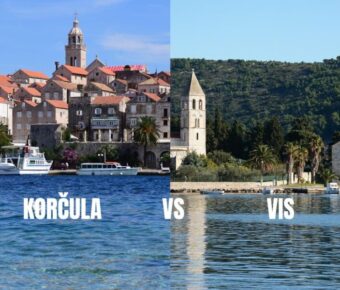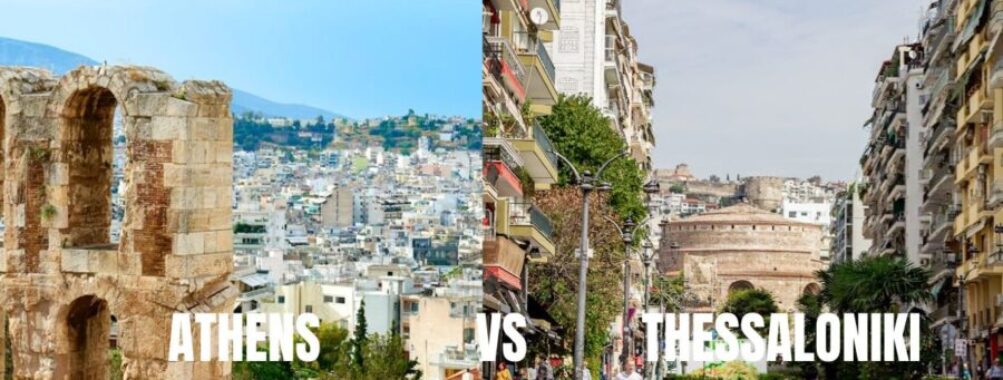
Athens vs Thessaloniki: 7 Surprising Differences for Travelers
Picking between Athens and Thessaloniki? Yeah, it can feel overwhelming, but honestly, it doesn’t have to be. If you crave ancient history and those legendary landmarks, Athens is the obvious winner. But Thessaloniki? That city’s all about the chill vibe, food culture, and an energy that just feels younger. They’re wildly different, so figuring out your own priorities will make things a whole lot easier.
I’ve wandered both cities, and honestly, they don’t even feel like rivals. In Athens, ruins and museums seem to pop up everywhere you turn. Thessaloniki, though, is where you slow down, savor marathon meals, and still stumble across Roman or Byzantine history—just minus the crowds.
So, ask yourself: are you after an epic dive into Greece’s ancient past, or do you want a city that blends history with a breezy, coastal lifestyle? Once you’ve got that sorted, the answer kind of reveals itself.
Table of Contents
- Key Takeaways
- Athens vs Thessaloniki: Core Differences
- City Size and Population
- Atmosphere and Vibe
- Cultural Experience
- Historical Landmarks and Museums
- Athens: The Acropolis and Ancient Sites
- Thessaloniki: White Tower, Rotunda, and Byzantine Heritage
- Museum Scene Comparison
- Food, Restaurants, and Local Specialties
- Signature Dishes: Souvlaki, Moussaka, and More
- Dining Scenes: From Taverns to Trendy Spots
- Iconic Streets: Ermou Street and Beyond
- Nightlife, Partying, and Leisure
- Nightlife Hotspots and Local Bars
- Student Life and Fun Activities
- Leisure Options for All Ages
- Cost of Living, Rent, and Transportation
- Comparing Rent and Accommodation
- Public Transportation and Getting Around
- Everyday Expenses and Affordability
- Travel Tips and Choosing the Right City
- Best Times to Visit
- Matching Your Interests to Each City
- Access to the Rest of Greece
- Frequently Asked Questions
- What cultural differences should I expect when visiting Athens compared to Thessaloniki?
- How does the cost of living in Thessaloniki compare with Athens for a digital nomad?
- What are the transportation options available when traveling from Athens to Thessaloniki?
- Which city, Athens or Thessaloniki, offers a richer historical experience for travelers?
- Can you highlight the differences in the culinary scene between Athens and Thessaloniki?
- What unique attractions does Thessaloniki offer that differ from those in Athens?
- Book Your Dream Experience
- More Travel Guides
Key Takeaways
- Athens is all about history and iconic landmarks
- Thessaloniki serves up food, culture, and that relaxed charm
- The right city? Depends on your travel style
Athens vs Thessaloniki: Core Differences
Athens and Thessaloniki stand as Greece’s major cities, but wow, they couldn’t feel more different once you land. Athens sprawls and buzzes with energy, while Thessaloniki feels compact and almost cozy. That contrast shapes everything—daily life, culture, and how you’ll experience each place.
City Size and Population
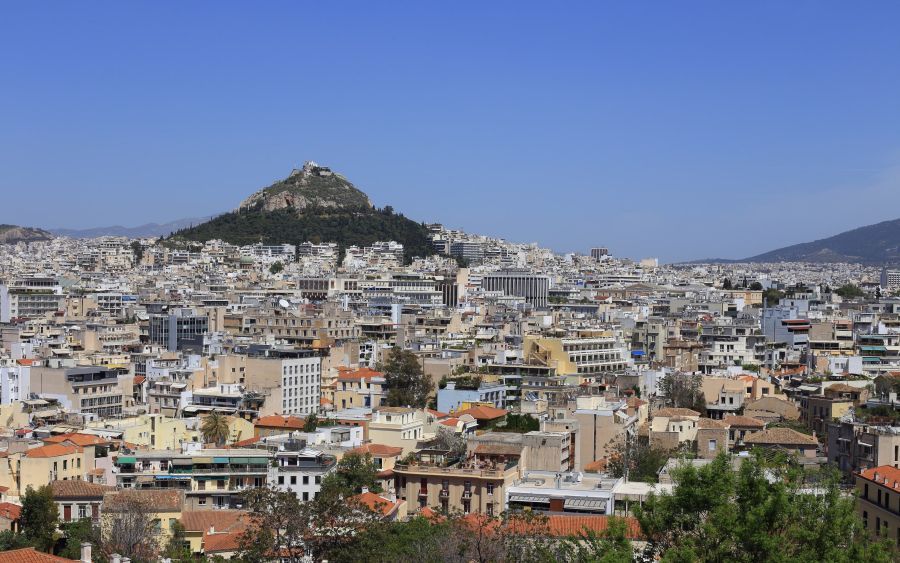
Athens is huge. We’re talking nearly four million people in the greater metro area. That’s a third of Greece’s entire population squeezed into one city. It feels every bit like a capital—busy, hectic, and honestly, the traffic never takes a break.
Thessaloniki? Way smaller. Around a million people, and you notice it right away. You can actually walk most of the city center without needing to mess with public transport.
Athens gives you endless options—jobs, universities, nightlife, you name it—but it comes with higher prices and more chaos. Thessaloniki’s scale makes it easier to get around, and if you like to feel at home quickly, it’s a friendlier fit.
| City | Metro Population | Walkability | Pace of Life |
|---|---|---|---|
| Athens | ~3.7 million | Moderate | Fast, crowded |
| Thessaloniki | ~1 million | High | Relaxed, compact |
Atmosphere and Vibe
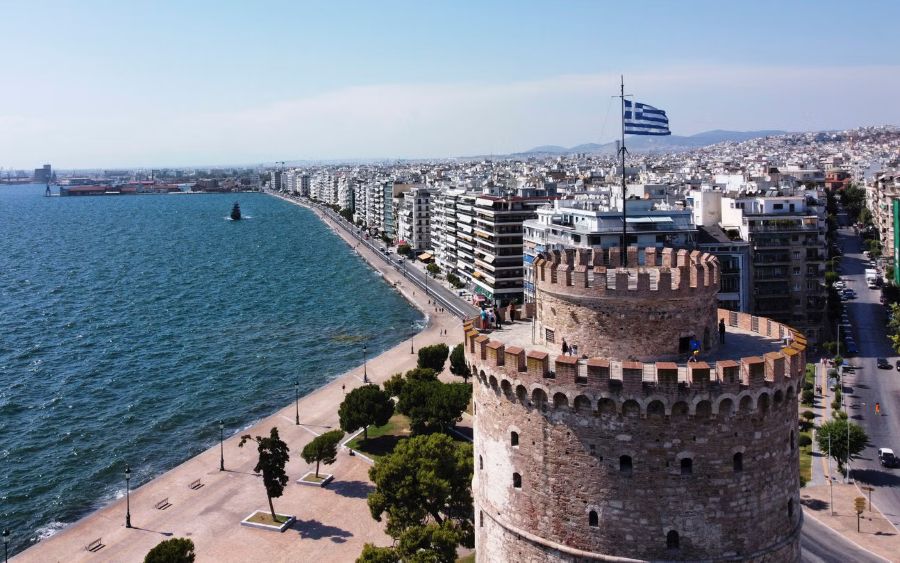
Athens pulses with nonstop energy. It’s loud, sometimes a little wild, and you’ll hear scooters and chatter from packed cafés everywhere. History and modern life collide here, but if you’re not a big-city person, it can be a lot.
Thessaloniki moves slower. Locals linger over coffee by the sea, and the waterfront promenade sets a gentler pace. Even the nightlife feels more about conversation than chaos.
If you feed off energy and movement, Athens is your playground. But if you’re looking for a city that feels approachable and, dare I say, a little more human, Thessaloniki is probably your speed.
Cultural Experience
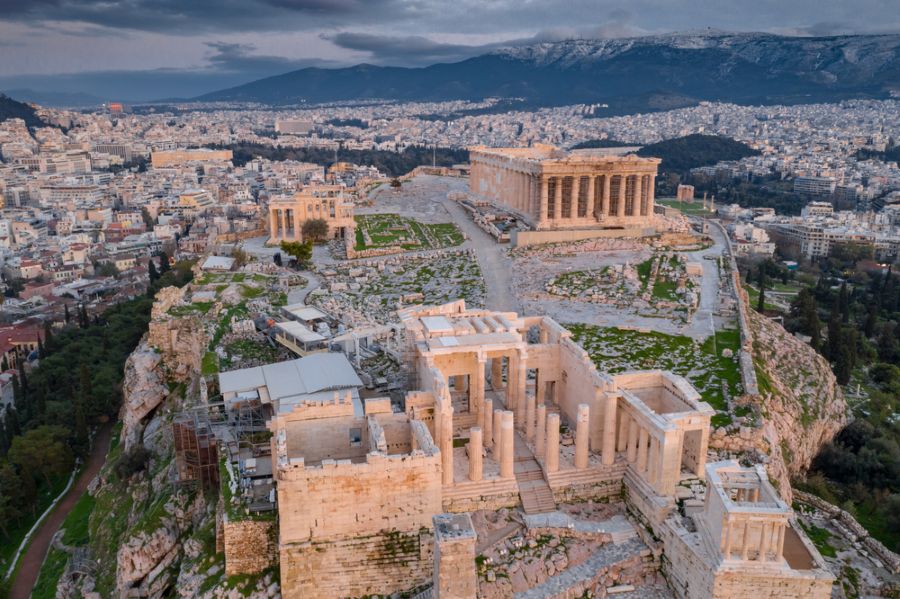
Athens is the heavyweight champ for ancient history. The Acropolis, Parthenon, and a ridiculous number of ruins make it impossible to walk far without tripping over something ancient. The museums—especially the Acropolis Museum and National Archaeological Museum—are world-class.
Thessaloniki brings a different mix. Roman arches, Byzantine churches, Ottoman relics, and a buzzing modern art scene all blend into daily life. UNESCO monuments are scattered through neighborhoods, not hidden away.
I always feel like Thessaloniki’s culture is more “lived-in.” Students fill cafés near Aristotle University, street art pops up on old walls, and festivals like the International Film Festival keep things creative. Athens impresses with its grandeur, but Thessaloniki charms with intimacy and variety.
If you’re a history lover, Athens is tough to beat. But if you want culture that feels like part of the city’s pulse, Thessaloniki really shines. For more on these contrasts, check out this Athens vs Thessaloniki guide.
Historical Landmarks and Museums
Both Athens and Thessaloniki overflow with history, but their stories couldn’t be more different. Athens leans on its classical ruins, while Thessaloniki layers on Byzantine and Ottoman influences. Each city’s museums dig into their own unique past.
Athens: The Acropolis and Ancient Sites
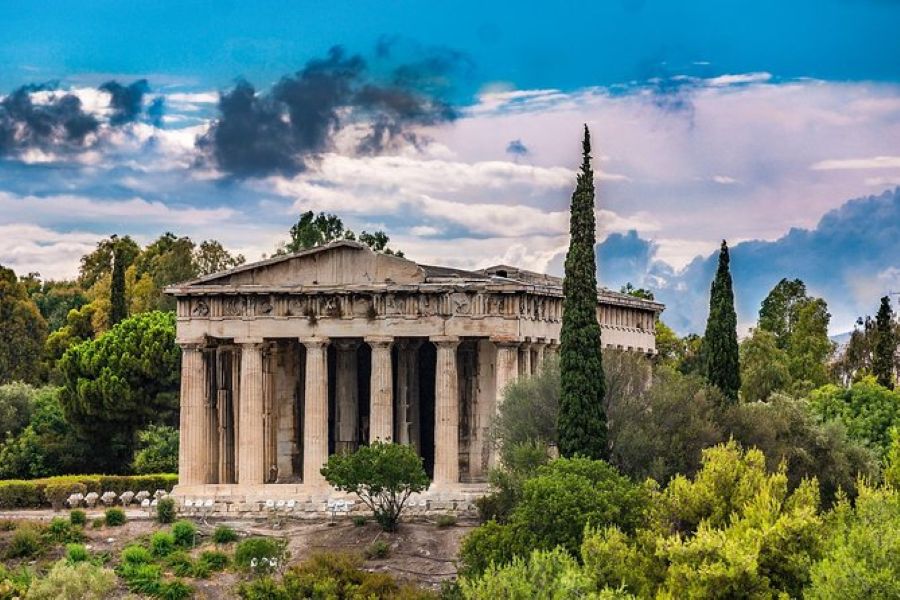
Say “Athens,” and the Acropolis instantly comes to mind. Standing up there by the Parthenon, you get a sense of just how long this city’s been around. The climb can be a workout, but the view? Totally worth it.
But it’s not just the Acropolis. The Ancient Agora—where Socrates once hung out—and the Temple of Olympian Zeus both pack a punch, even as ruins. I remember wandering the Agora and being surprised how close everything is; you can see a lot in one afternoon.
Pressed for time? Don’t skip the Acropolis Museum. They display original sculptures and artifacts in a way that feels fresh but still honors the past. You’ll leave with a better sense of how Athens shaped the world.
Thessaloniki: White Tower, Rotunda, and Byzantine Heritage
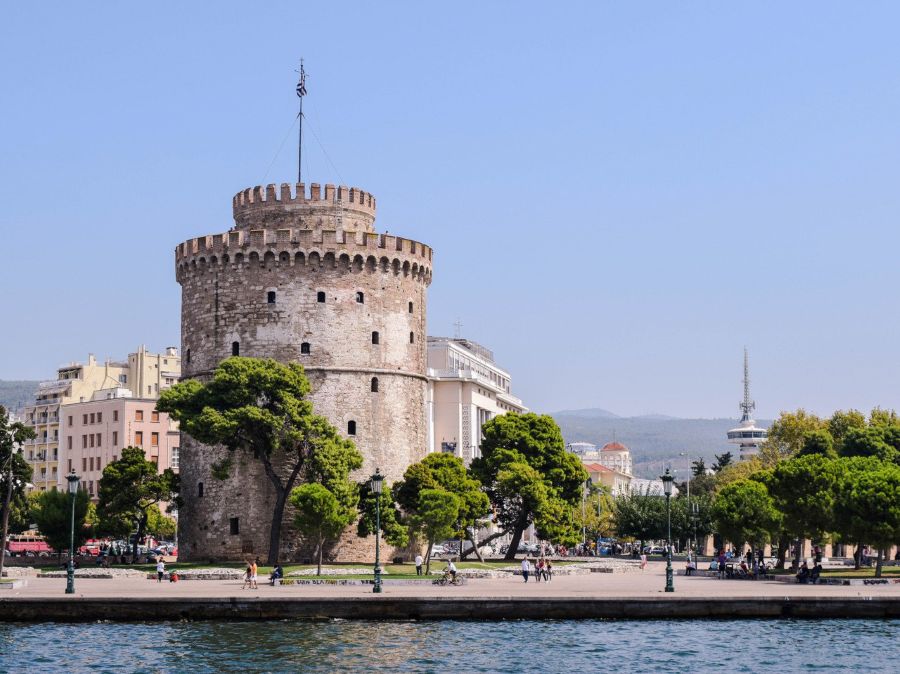
Thessaloniki tells a different story. Instead of one showstopper, you get a handful of scattered landmarks. The White Tower is the city’s symbol, right on the waterfront. Climb to the top for killer bay views, especially at sunset.
Not far away, the Rotunda stands out—a massive, round building from the 4th century. Over time, it’s been a mausoleum, church, and mosque. You can still spot traces of all those eras in its mosaics and walls.
What really sets Thessaloniki apart? Its Byzantine heritage. The city’s packed with old churches like Agios Demetrios and the Museum of Byzantine Culture—a gem that’s way too easy to miss. It’s quieter than Athens’ big museums, but the stories run deep.
Museum Scene Comparison
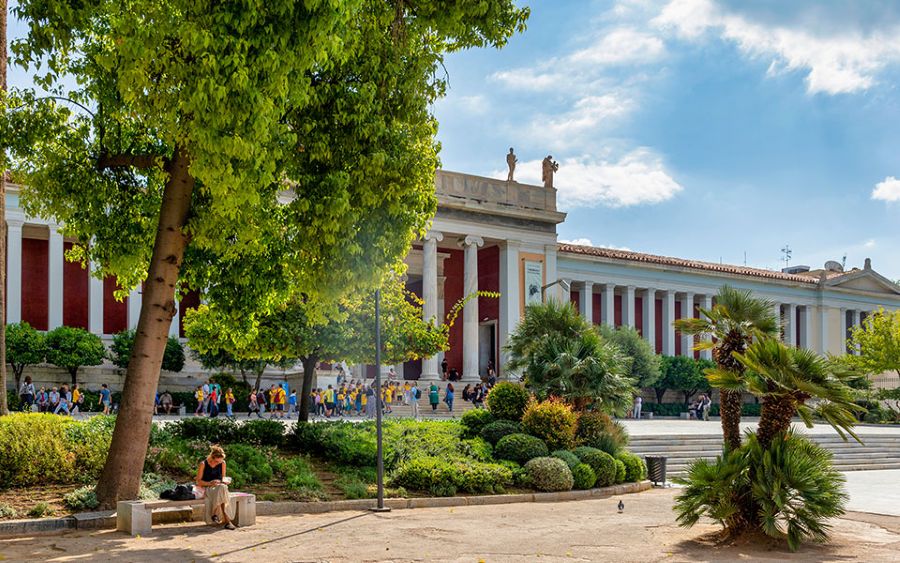
Athens goes big with its museums. The National Archaeological Museum is legendary, loaded with treasures from all over Greece. You’ll see statues and artifacts that just don’t fit anywhere else.
Thessaloniki’s museums focus more on the region. The Archaeological Museum of Thessaloniki covers Macedonia’s ancient past—think Vergina and Pella. And if you’re into Byzantine art, Thessaloniki might actually top Athens, with exhibits showing off daily life, not just religion.
If blockbuster collections are your thing, Athens will keep you busy for days. But if you want a museum that feels more personal, Thessaloniki delivers. I’ve spent way longer than planned there because the pace just invites you to linger.
Quick comparison:
| City | Highlight Landmark | Museum Focus | Vibe |
|---|---|---|---|
| Athens | Acropolis & Parthenon | Classical antiquity & archaeology | Iconic, crowded |
| Thessaloniki | White Tower & Rotunda | Byzantine heritage & regional history | Relaxed, layered |
You’ll find history in both places, but the flavor changes—marble hills in Athens or Thessaloniki’s breezy seaside streets.
Food, Restaurants, and Local Specialties
Greek food isn’t just food—it’s woven into daily life. Both Athens and Thessaloniki serve up everything from street snacks to cozy tavernas and creative new spots. Each city’s got its own food rhythm, and that’s honestly half the fun.
Signature Dishes: Souvlaki, Moussaka, and More

Let’s start with souvlaki. In Athens, souvlaki stands are everywhere, packed with locals grabbing a quick bite. Thessaloniki does souvlaki too, but it’s better known for bougatsa—a flaky pastry stuffed with cream or cheese that’s a breakfast must.
Craving something heartier? Moussaka is your answer. Layers of eggplant, potatoes, spiced meat, and béchamel—honestly, it’s comfort food at its best. I once ordered it at a tiny taverna in Athens, and the owner insisted I wait until it cooled. He was right; it’s better warm, not scalding.
Don’t skip dolmades (stuffed grape leaves) or fresh seafood along the coast. Thessaloniki’s Modiano Market is perfect for grilled sardines or octopus, while Athens’ Varvakios Agora feels like a trip back in time with its butchers and spice stalls.
Dining Scenes: From Taverns to Trendy Spots
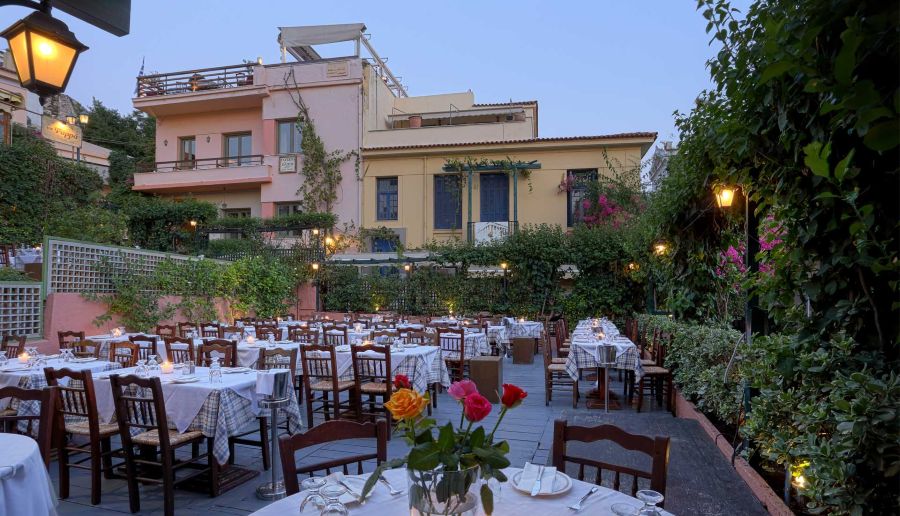
Athens has earned its reputation as a world food capital, with everything from classic taverns to high-end restaurants. In neighborhoods like Psiri, tables spill into cobbled streets, and meze comes with ouzo or tsipouro. If you want variety, Athens has you covered.
Thessaloniki is Greece’s culinary capital for a reason. Taverna meals feel more relaxed, and prices are often easier on the wallet—locals say you can eat well here for half what you’d pay in Athens. Sofia Adventures puts a meal for two with wine at around €25.
Trendy restaurants are popping up in both cities, but Thessaloniki’s youthful vibe gives it an edge for creative menus and late-night eats. If you’re the type who likes to linger over food until midnight, Thessaloniki just feels right. Athens is lively, but leans a bit more traditional.
Iconic Streets: Ermou Street and Beyond
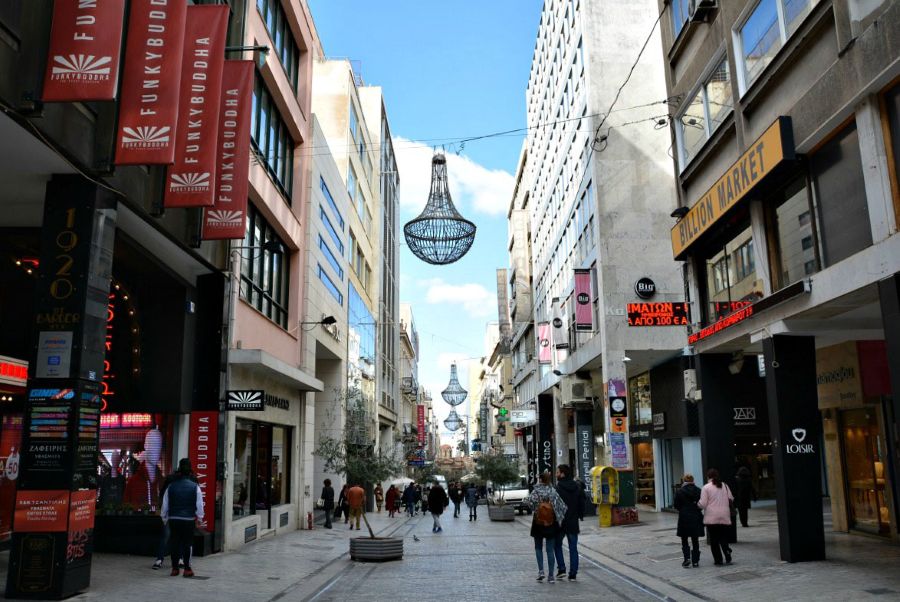
In Athens, Ermou Street is the main shopping drag, but it’s crammed with cafés and quick eats too. Perfect for grabbing souvlaki or coffee while you people-watch. It’s busy—sometimes almost too busy—but if you love a crowd, you’ll fit right in.
Nearby, Monastiraki and Plaka change the mood. Rooftop restaurants serve up views of the Acropolis. I once ate dinner on a terrace as the Parthenon lit up after dark—honestly, there’s nothing like it.
Thessaloniki shifts the scene to the waterfront promenade and Aristotelous Square. Cafés line the sea, and you can sip coffee or snack on meze while the sun sets over the Thermaic Gulf. The city seems to slow down by the water, and that’s part of its magic.
Nightlife, Partying, and Leisure
Athens and Thessaloniki both come alive after dark, but the feeling is totally different in each. Athens buzzes with big, high-energy clubs and venues, while Thessaloniki thrives on cozy bars and student-filled hangouts. The rhythm? Way more laid-back up north.
Nightlife Hotspots and Local Bars

Athens spills its nightlife across neighborhoods like Gazi, Psiri, and Exarchia. One night you might end up sipping cocktails on a rooftop with the Acropolis glowing in the distance, and the next you’re dancing in a basement club until sunrise. The options? Endless. Maybe even a little intimidating if you’re new in town.
Thessaloniki keeps things closer together—most of the action happens in Ladadika and along the waterfront. The bars here? Way more intimate. When I ducked into a tiny place near the White Tower, the bartender poured me homemade tsipouro and chatted like we’d known each other for years. That’s the kind of warmth you just stumble into up north.
If you crave big-name DJs and massive venues, Athens is your playground. But if you’re after friendly bars with a neighborhood feel, Thessaloniki usually wins.
Student Life and Fun Activities

Thessaloniki bursts with student energy, thanks to Aristotle University. Cafés are packed with students by day, then morph into casual bars after dark. Prices stay friendly, so you don’t have to stress about your wallet every time you go out.
Athens has its own student scene, but it’s less obvious since the city sprawls so much. You’ll spot plenty of young people in Exarchia or around campus, but you’ll also bump into professionals and tourists. Thessaloniki’s youthful vibe makes it easy to stumble into spontaneous fun. One night, I ended up at a backstreet taverna with a live rebetiko band—completely unplanned and unforgettable.
Both cities throw cultural festivals, but Thessaloniki’s International Film Festival really transforms the city. Suddenly, everyone’s talking movies, and the after-parties keep the buzz going.
Leisure Options for All Ages

Not every night out needs to be wild. In Athens, you can wander up Mount Lycabettus for sunset or stroll the seaside at Flisvos Marina. Outdoor cinemas pop up in summer, and honestly, nothing beats watching a classic film under the stars with a cold beer.
Thessaloniki feels more relaxed. The 5km waterfront promenade is perfect for walking, biking, or just sitting with an ice cream, gazing out at Mount Olympus. Families gather here, and street performers sprinkle in some fun without making it feel like a tourist show.
For day-to-night leisure, Thessaloniki lets you escape to Halkidiki’s beaches in no time. Athens offers quick routes to coastal suburbs like Glyfada. Both cities balance party culture with slower-paced pleasures, so you can pick your speed.
Curious about the details? Here’s a deep dive into Athens vs Thessaloniki nightlife and activities.
Cost of Living, Rent, and Transportation
Living in Athens usually costs more than Thessaloniki, especially when it comes to housing and daily expenses. Rent makes the biggest dent, but transportation and groceries add up too.
Comparing Rent and Accommodation
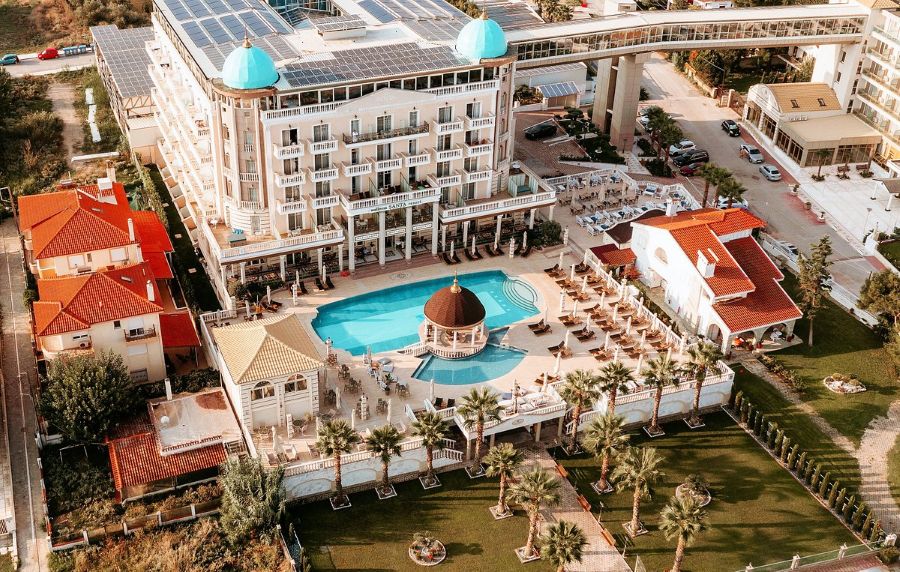
Rent is where you’ll really see the difference. In central Athens, a one-bedroom apartment will set you back anywhere from €500 to €1,200 each month. Thessaloniki? You can snag a similar spot for €300 to €600. That’s a huge gap if you’re thinking long-term.
Athens gets pricier because it’s the capital and the economic center. Thessaloniki, being smaller and a bit more laid-back, keeps housing costs lower.
If you like having space, Thessaloniki gives you more options without breaking the bank. In Athens, you’ll probably compromise on size or location unless you’re ready to pay top euro. Students, freelancers, or anyone stretching their budget will find Thessaloniki super appealing.
Public Transportation and Getting Around
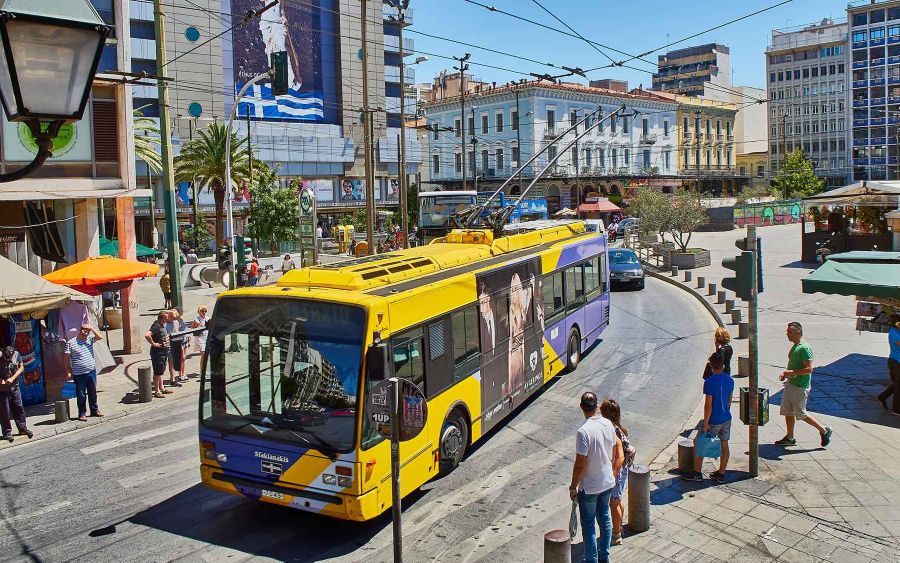
Both cities offer solid public transport, but Athens has the edge with its metro system. The metro runs clean and fast, while buses can crawl through traffic. Thessaloniki mostly relies on buses, and everyone’s been waiting forever for the metro to finally open.
A single bus ticket in Thessaloniki costs about €1.09, while Athens charges €1.31. It’s not a huge difference, but daily commuters will notice. Monthly passes are cheaper in Thessaloniki too.
Athens spreads out, so you’ll spend more time (and cash) getting around. Thessaloniki is compact—you can often just walk or bike. And if you’re hopping around Europe, cheap flights are easy to find from both cities.
Everyday Expenses and Affordability
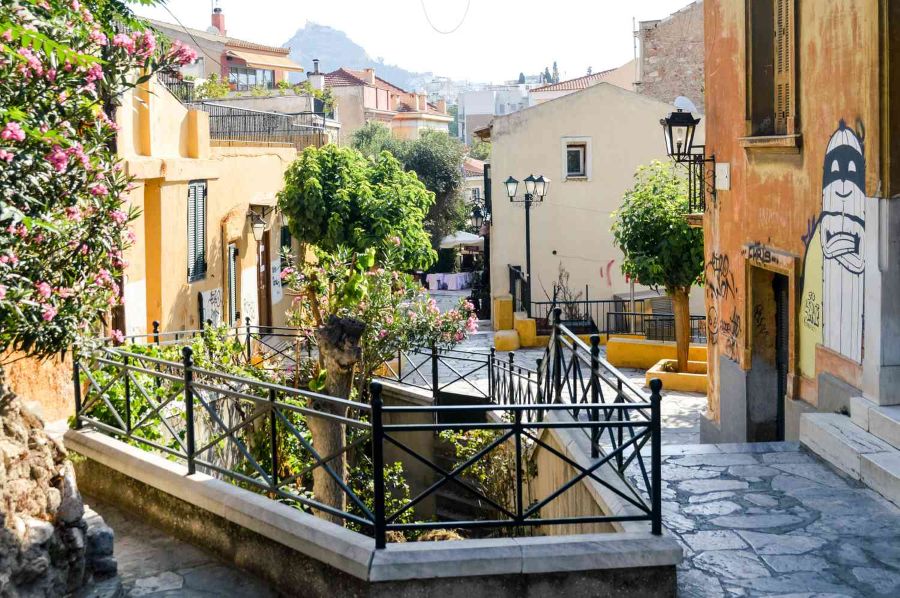
Groceries and dining out lean slightly cheaper in Thessaloniki, but the gap isn’t huge. Fresh produce, local tavern meals, and coffee come in a bit lower. Athens, with its international flair, offers more variety but also higher prices in touristy spots.
Utilities like electricity, water, and internet stay pretty even between the two. Entertainment and personal care? Thessaloniki usually keeps those costs a bit lower. Even gym memberships and movie tickets often cost less.
If you’re watching your budget, Thessaloniki just makes life easier. Athens wins on variety, but you’ll pay for it. Both cities still feel affordable compared to Western Europe, and smart planning—like grabbing discount airfare—helps you save even more.
Travel Tips and Choosing the Right City
Choosing between Athens and Thessaloniki? It really depends on when you visit, what you love, and how you plan to get around Greece. Each city has its own sparkle, and honestly, it comes down to your travel style.
Best Times to Visit
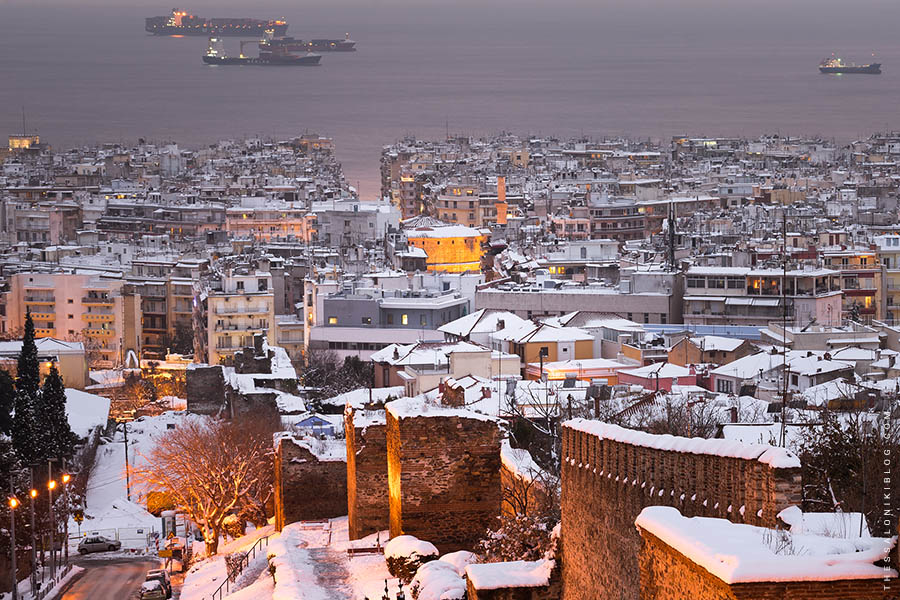
Athens in July and August? Prepare for serious heat and crowds. The Acropolis lines can test anyone’s patience. If you want to see the city at its best, shoot for late spring (April–June) or early autumn (September–October). The weather stays warm, but the city just feels more manageable.
Thessaloniki enjoys a cooler climate, so summer is much more comfortable. I’ve spent August evenings on the waterfront there, and it felt lively but never overwhelming. Winters are mild—sometimes rainy—but still pleasant if you’re not chasing endless sunshine.
If you’re a festival fan, Athens brings in big international events, while Thessaloniki’s film festival in November is legendary. Either way, book your hotels and flights early to dodge last-minute headaches.
Matching Your Interests to Each City
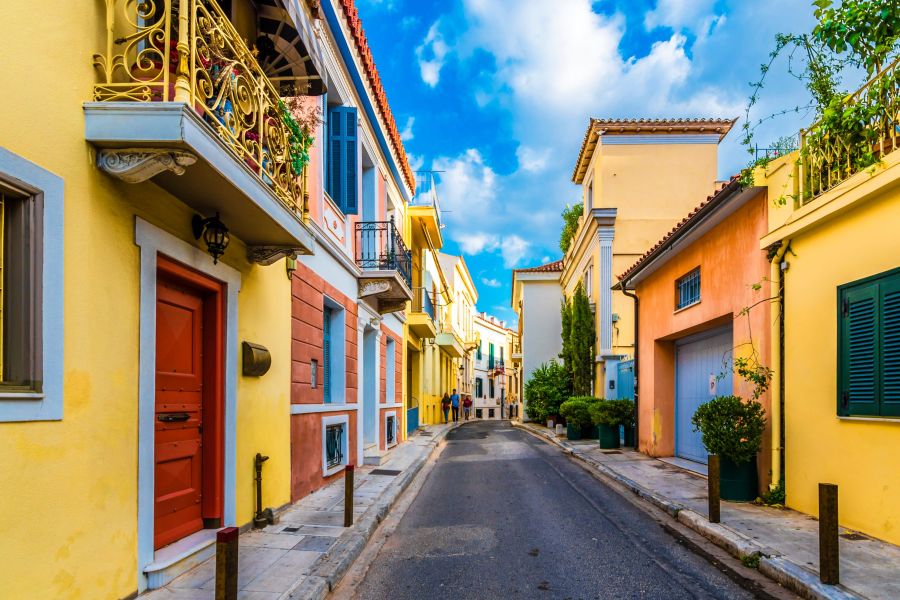
What lights you up? If ancient history makes your heart race, Athens is a must. Standing beneath the Parthenon? It’s one of those moments you’ll talk about forever. Museums are top-notch, and wandering Plaka’s old streets feels like stepping back in time.
But if you’re all about food, nightlife, and a younger energy, Thessaloniki might be your soulmate. The café culture is unbeatable, street food is everywhere, and the student vibe keeps things buzzing late. I once spent an entire day bakery-hopping in Thessaloniki and, honestly, didn’t regret a single bite.
Both cities offer guided tours and day trips. You can book local experiences easily, whether it’s a food walk in Thessaloniki or a half-day jaunt to Cape Sounion from Athens.
Access to the Rest of Greece

Athens is your launchpad for the islands. Ferries leave daily for Santorini, Mykonos, Crete—you name it. If island hopping is on your list, Athens makes it easy. The airport’s the biggest in Greece, so flights to the rest of Europe are a breeze.
Thessaloniki is perfect for exploring northern Greece and the Balkans. You can hit Halkidiki’s beaches in a couple of hours or head to Mount Olympus. The city has its own international airport, but there aren’t as many direct flights as Athens.
Trains and buses connect the two cities, but if you want freedom, rent a car through Expedia. The Greek countryside is best explored at your own pace, and a car lets you chase those hidden gems.
Frequently Asked Questions
Athens and Thessaloniki each have their own thing going on. Athens feels like the pulse of ancient history, while Thessaloniki leans into a relaxed, youthful vibe and a food scene locals rave about. Costs, transport, and lifestyle all shift depending on what kind of trip you want.
What cultural differences should I expect when visiting Athens compared to Thessaloniki?
Athens moves fast. It’s busy, crowded, and you’ll feel the political and economic buzz everywhere. Thessaloniki, though, is way more laid-back and social. Public spaces invite you to linger and chat.
You’ll spot more student energy in Thessaloniki, thanks to its big university. Athens has the upper hand in national museums and monuments that really showcase Greece’s role in shaping Western civilization.
How does the cost of living in Thessaloniki compare with Athens for a digital nomad?
Thessaloniki comes out cheaper for rent, food, and daily life. You’ll pay less for a one-bedroom apartment than in Athens. That lower cost of living makes it super attractive if you’re freelancing or working remotely.
Athens offers more jobs and networking, but you’ll pay more for housing and eating out. If you’re planning a longer stay, Thessaloniki stretches your budget further without sacrificing quality.
What are the transportation options available when traveling from Athens to Thessaloniki?
You can fly between Athens and Thessaloniki in under an hour—super quick. Trains are popular, too, taking about four hours and giving you countryside views along the way.
Long-distance buses cost the least, but take a bit longer. If you’re lugging bags, booking luggage storage near stations makes life easier.
Which city, Athens or Thessaloniki, offers a richer historical experience for travelers?
Athens is unmatched for ancient ruins. The Acropolis, Parthenon, and Ancient Agora are world-famous for a reason. Walking through Athens, you feel like you’re inside a living museum.
Thessaloniki tells a different story, with Roman, Byzantine, and Ottoman landmarks woven right into the city. The White Tower and Rotunda stand out, and history feels part of daily life, not just set aside behind fences.
Can you highlight the differences in the culinary scene between Athens and Thessaloniki?
Athens brings variety—fine dining, casual souvlaki, and international flavors. Thessaloniki, though, is Greece’s food capital for many locals. Here, you’ll find hearty street snacks, endless meze, and legendary sweets.
If you’re a bakery lover, Thessaloniki is paradise. Bougatsa (that custard-filled pastry) is everywhere. Athens wins on range, but Thessaloniki feels more indulgent and, dare I say, more authentic.
What unique attractions does Thessaloniki offer that differ from those in Athens?
Thessaloniki’s 5km waterfront promenade is honestly one of my favorite things about the city. You can stroll or hop on a bike, all while catching those dreamy views of Mount Olympus if the sky’s clear enough.
Every November, the city comes alive with the International Film Festival. Film buffs from all over show up, and the vibe is electric—there’s nothing quite like it.
Now, here’s something a little different from Athens: you won’t find sandy beaches right in Thessaloniki. Instead, you’ll want to make a short trip out to Halkidiki for that classic beach day.
If you’re thinking about day trips, don’t forget to pack the right travel gear. Trust me, it makes exploring so much easier—nothing kills the mood like realizing you left your comfy shoes behind.

